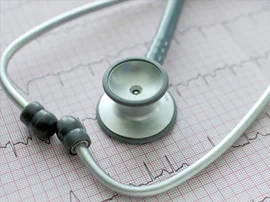I often times get asked by my patients “What is Atrial Fibrillation?”(commonly called AFIB for short), so I thought this would be the perfect time to post a blog article about it.
A healthy heart beats between 60 and 80 times a minute. (The average rate is 72.) Any significant deviation from that range is a heartbeat irregularity, also called arrhythmia.
To ensure that its rhythm remains regular, the heart has its own electrical system comprised of three parts:
1. The sinoatrial (SA) node, located in the heart’s upper right chamber, is the heart’s natural pacemaker. The SA node is comprised of special cells that generate electrical impulses like the spark plug in a car engine. The SA node keeps the heart firing in the correct rhythm.
2. The atrialventricular node (AV), located in the center, picks up signals from the SA node and passes them to the lower part of the heart. The AV node acts like a filter, letting each beat travel to the lower chambers of the heart.
3. The His-Purkinje system is a bundle of fibers that carries electricity through the lower chambers of the heart (the ventricles) and causes those chambers to contract, pushing blood to the rest of the body through the vascular system.
If this electrical system malfunctions, the result is an irregular heartbeat. There are two types of irregular heartbeat that affect the atria (the heart’s upper chambers): flutters and fibrillations.
An atrial flutter (AFL) is a fast, even heartbeat of 250 to 300 beats per minute. The lower chambers of the heart, the ventricles, beat slower than that.
Atrial fibrillation (AF) occurs when the heart beats fast and uncontrollably, generating 300 to 600 beats per minutes.
Fibrillation is much more chaotic than a flutter, and not all the beats reach the ventricle. As a result, the heart is often unable to perform its main function, which is providing a fresh supply of oxygen-rich blood to the body, and will often times leave you feeling lethargic.
If you feel you have any of the symptoms above, it is recommended you go ahead and schedule a visit with your doctor as soon as possible. AFIB is something you want controlled right away, so that your heart can quickly resume its normal function and be able to deliver that fresh supply of oxygen-rich blood throughout your body.

